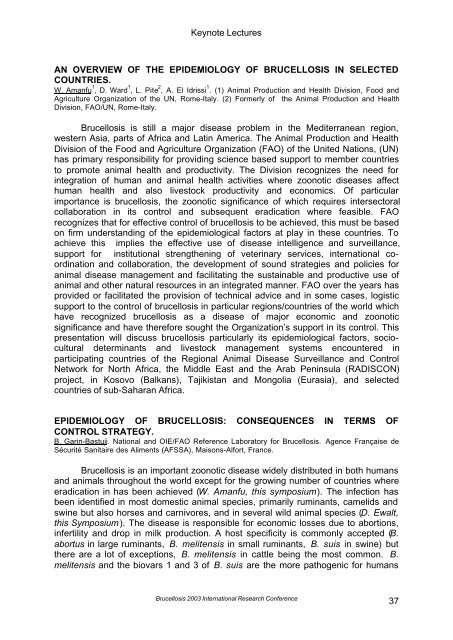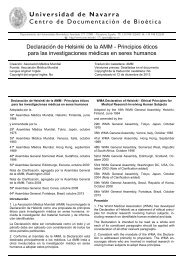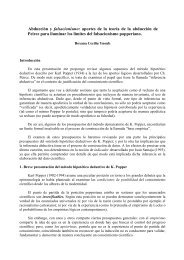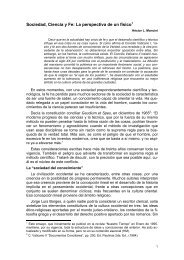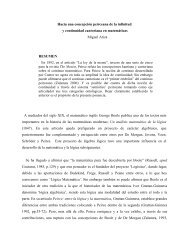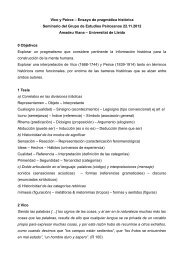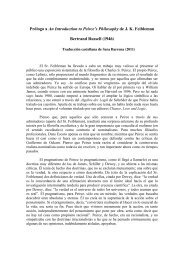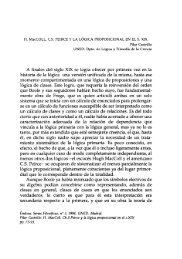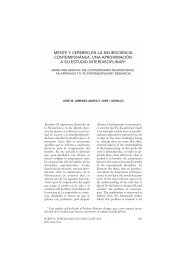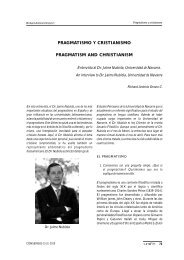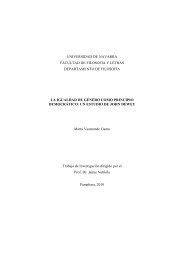Brucellosis 2003 proceedings - PHIDIAS
Brucellosis 2003 proceedings - PHIDIAS
Brucellosis 2003 proceedings - PHIDIAS
You also want an ePaper? Increase the reach of your titles
YUMPU automatically turns print PDFs into web optimized ePapers that Google loves.
Keynote Lectures<br />
AN OVERVIEW OF THE EPIDEMIOLOGY OF BRUCELLOSIS IN SELECTED<br />
COUNTRIES.<br />
W. Amanfu 1 , D. Ward 1 , L. Pite 2 , A. El Idrissi 1 . (1) Animal Production and Health Division, Food and<br />
Agriculture Organization of the UN, Rome-Italy. (2) Formerly of the Animal Production and Health<br />
Division, FAO/UN, Rome-Italy.<br />
<strong>Brucellosis</strong> is still a major disease problem in the Mediterranean region,<br />
western Asia, parts of Africa and Latin America. The Animal Production and Health<br />
Division of the Food and Agriculture Organization (FAO) of the United Nations, (UN)<br />
has primary responsibility for providing science based support to member countries<br />
to promote animal health and productivity. The Division recognizes the need for<br />
integration of human and animal health activities where zoonotic diseases affect<br />
human health and also livestock productivity and economics. Of particular<br />
importance is brucellosis, the zoonotic significance of which requires intersectoral<br />
collaboration in its control and subsequent eradication where feasible. FAO<br />
recognizes that for effective control of brucellosis to be achieved, this must be based<br />
on firm understanding of the epidemiological factors at play in these countries. To<br />
achieve this implies the effective use of disease intelligence and surveillance,<br />
support for institutional strengthening of veterinary services, international coordination<br />
and collaboration, the development of sound strategies and policies for<br />
animal disease management and facilitating the sustainable and productive use of<br />
animal and other natural resources in an integrated manner. FAO over the years has<br />
provided or facilitated the provision of technical advice and in some cases, logistic<br />
support to the control of brucellosis in particular regions/countries of the world which<br />
have recognized brucellosis as a disease of major economic and zoonotic<br />
significance and have therefore sought the Organization’s support in its control. This<br />
presentation will discuss brucellosis particularly its epidemiological factors, sociocultural<br />
determinants and livestock management systems encountered in<br />
participating countries of the Regional Animal Disease Surveillance and Control<br />
Network for North Africa, the Middle East and the Arab Peninsula (RADISCON)<br />
project, in Kosovo (Balkans), Tajikistan and Mongolia (Eurasia), and selected<br />
countries of sub-Saharan Africa.<br />
EPIDEMIOLOGY OF BRUCELLOSIS: CONSEQUENCES IN TERMS OF<br />
CONTROL STRATEGY.<br />
B. Garin-Bastuji. National and OIE/FAO Reference Laboratory for <strong>Brucellosis</strong>. Agence Française de<br />
Sécurité Sanitaire des Aliments (AFSSA), Maisons-Alfort, France.<br />
<strong>Brucellosis</strong> is an important zoonotic disease widely distributed in both humans<br />
and animals throughout the world except for the growing number of countries where<br />
eradication in has been achieved (W. Amanfu, this symposium). The infection has<br />
been identified in most domestic animal species, primarily ruminants, camelids and<br />
swine but also horses and carnivores, and in several wild animal species (D. Ewalt,<br />
this Symposium). The disease is responsible for economic losses due to abortions,<br />
infertility and drop in milk production. A host specificity is commonly accepted (B.<br />
abortus in large ruminants, B. melitensis in small ruminants, B. suis in swine) but<br />
there are a lot of exceptions, B. melitensis in cattle being the most common. B.<br />
melitensis and the biovars 1 and 3 of B. suis are the more pathogenic for humans<br />
<strong>Brucellosis</strong> <strong>2003</strong> International Research Conference<br />
37


